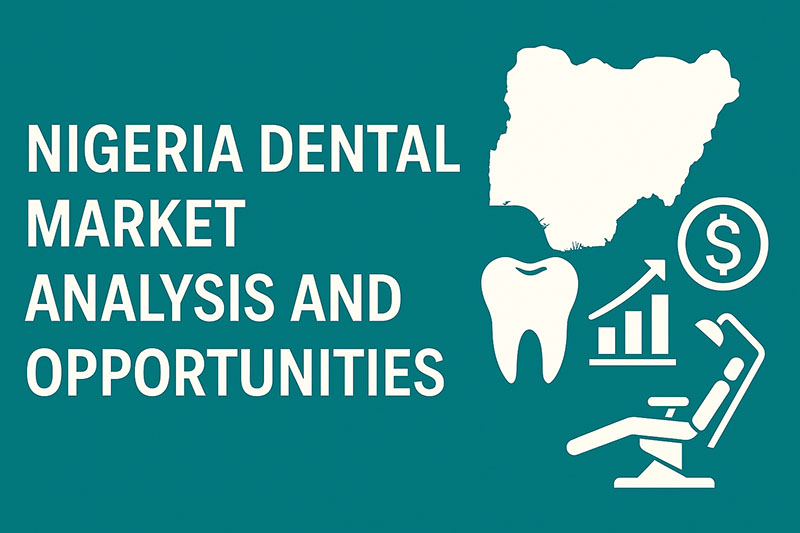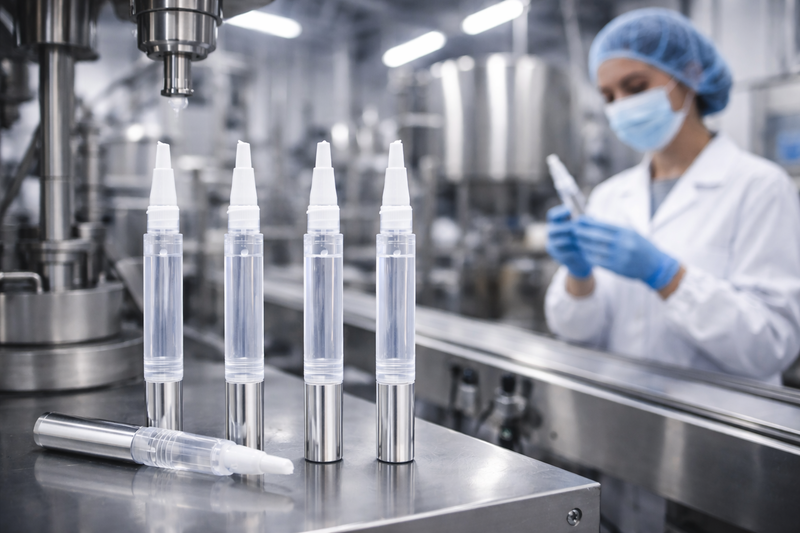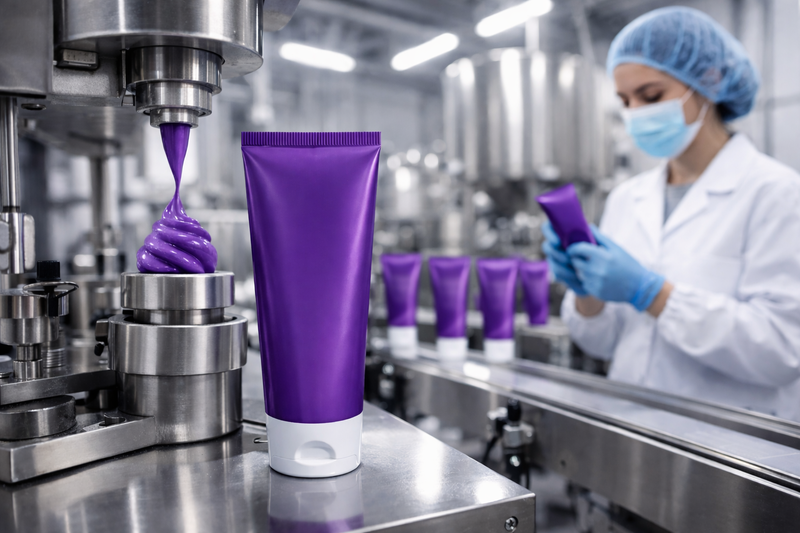Nigeria Oral Health Market Size Demand and Trends
Overview of the dental market in Nigeria
Nigeria is Africa’s most populous country, with more than 220 million people and a fast-urbanising population. Yet the dental sector remains underdeveloped compared with overall healthcare.
Key points:
Historical national survey data report around 446 dental facilities in Nigeria, including public hospital dental departments, private clinics and faith-based units.
Given population growth, private sector expansion and ongoing urbanisation, many analysts infer that current dental facilities are likely in the 500–700 range, still very low for such a large population.
The dentist workforce is small and unevenly distributed. Estimates in the last decade suggest roughly 3,000–4,000 registered dentists, with a large share concentrated in a few cities and teaching hospitals.
For SEO: think of core phrases like “Nigeria dental market size”, “dental clinics in Lagos Nigeria”, “oral health care in Nigeria” and weave them naturally into your content.
Clinic distribution and regional gaps
The Nigeria dental clinics market is highly concentrated in a few urban locations.
Studies of the oral health system show that more than half of all dental providers are in the southern part of the country, especially the South West.
Within the South West, Lagos State alone hosts a very large share of private dental clinics, including many of the country’s high-end practices.
Northern regions have far fewer dentists per capita; some zones face ratios worse than 1 dentist per 200,000–250,000 people, compared with the WHO benchmark of 1 per 10,000.
For investors and operators, this geographic imbalance creates two main patterns:
Urban competition but high value in Lagos Abuja Port Harcourt
Many private clinics target middle and upper-income patients with cosmetic dentistry, implants and orthodontics.
Vast underserved demand in secondary cities and rural areas
Rural populations make up over half of Nigerians but have minimal access to formal dental care; outreach, mobile clinics and tele-dentistry models have significant potential here.
Disease burden and treatment patterns
Any realistic oral health market analysis in Nigeria has to start from disease burden.
Research and WHO country profiles show:
High prevalence of untreated dental caries in both children and adults.
Very high levels of periodontal disease among adults, with bleeding gums, calculus and pocketing widely reported.
Low utilisation of preventive services such as routine check-ups, scaling and polishing.
In practice, this means that many visits to a Nigerian dental clinic are:
Pain-driven and delayed.
Focused on extractions and emergency treatment rather than conservative care.
Common services provided by dental clinics in Nigeria include:
Emergency care and extractions
Fillings and root canal treatments
Scaling and polishing, periodontal therapy
Removable and fixed prosthetics (dentures, bridges)
Orthodontic treatment and cosmetic dentistry in urban centres
Oral and maxillofacial surgery in teaching hospitals and specialist centres
Consumer spending and pricing levels
According to WHO oral health profiles, per capita expenditure on dental care in Nigeria is around US$0.7 per year, which is extremely low by global standards.
However, this number hides a split market:
A small portion of the population, mainly in cities, spends significant amounts on private dental services.
The majority spend nothing in a typical year, because they never visit a dentist.
Public and private clinic price lists give a sense of typical out-of-pocket costs in urban areas:
Scaling and polishing: roughly 20,000–60,000 NGN in private clinics
Simple extraction: about 10,000–55,000 NGN depending on case complexity
Fillings: historically 5,000–10,000 NGN, though inflation and materials have raised prices in many cities
Root canal treatment: typically 80,000–150,000 NGN per tooth in mid-range private clinics
Teeth whitening: approximately 70,000–150,000 NGN for in-office procedures
Public hospitals and teaching hospitals often charge less, but capacity is limited and waiting times are longer.
From a business standpoint, average revenue per patient can be attractive for higher-value procedures (root canals, crowns, implants, orthodontics), but price sensitivity is high for the majority of the population.
Payment methods and insurance coverage
The structure of the Nigeria dental services market is shaped heavily by payment mechanisms.
Overall, more than 70 percent of total health expenditure in Nigeria comes from out-of-pocket payments by households.
Dental care is largely excluded or only minimally covered by many insurance schemes.
The National Health Insurance Authority and some state-level schemes (for example, in Lagos) cover basic dental services but often exclude orthodontics, cosmetic work and many complex restorative procedures.
This leads to several market realities:
For most low-income patients, cost is the main barrier, and they will delay care or opt for extraction instead of preservation.
Private clinics targeting middle-income segments increasingly explore HMO partnerships, corporate retainers and installment payment options to reduce upfront cost pressure and stabilise cash flow.
Customer segments in the Nigeria dental services market
A practical dental market analysis for Nigeria should identify distinct customer groups.
Urban middle and upper income patients
Concentrated in Lagos, Abuja, Port Harcourt and other large cities.
Use private practices and premium clinics.
Demand both functional care and aesthetic services such as teeth whitening, veneers and orthodontics.
Urban and peri-urban low income patients
Rely on public hospitals or low-cost clinics.
Primarily seek relief from pain and infection.
Limited ability to pay for complex restorative or cosmetic treatment.
Children and adolescents
High caries prevalence; service use depends strongly on parental awareness and income.
Older adults
Lower utilisation rates; many have never seen a dentist in their lifetime.
Expatriates and medical tourists
Form a smaller but lucrative niche market in major cities.
Seek international-standard care for implants, full mouth rehabilitation and aesthetic dentistry.
Each segment supports different positioning, pricing and marketing strategies.
Try Lidercare Now!
We Help You Launch New Products, And Continue To Grow. Try Us With 20% Off Your First Order!
Key growth drivers and challenges
Growth drivers in the Nigeria dental market include:
Demographics and urbanisation
A young, growing population and expanding urban middle class provide long-term demand.
Rising awareness of oral health and aesthetics
Social media, global beauty trends and lifestyle changes are boosting interest in whitening, orthodontics and smile design.
Private investment and technology adoption
Digital radiography, CBCT, clear aligners and CAD CAM solutions are already present in top clinics in Lagos and Abuja, improving service quality and perceived value.
Major challenges and constraints:
Low overall purchasing power and high out-of-pocket burden
Shortage and maldistribution of dentists and oral health professionals
Weak preventive culture and limited school-based oral health programmes
Infrastructure and supply chain constraints, especially for advanced equipment and materials in secondary cities and rural regions
Opportunities for investors and dental providers
Based on current data, several opportunity areas stand out in the Nigeria dental clinic market:
Mid-market clinics in secondary cities
Focus on evidence-based basic services: diagnostics, fillings, extractions, scaling, simple prosthetics.
Use efficient, standardised protocols to keep prices competitive while maintaining quality.
Affordable preventive and membership models
Annual or semi-annual check-up packages with scaling and polishing.
Subscription-style plans aimed at corporates, schools and churches.
Partnerships with HMOs and employers
Bundled dental benefits as part of corporate health plans.
On-site screenings and referral pathways to partner clinics.
Specialist and high-end centres in major cities
Implants, full mouth rehabilitation, advanced orthodontics and cosmetic dentistry.
Strong branding and digital marketing targeting keywords like “best dental clinic in Lagos”, “teeth whitening in Abuja” and “dental implants in Nigeria”.
Mobile and outreach solutions for rural areas
Mobile dental vans, periodic outreach clinics and tele-consultation platforms.
Public-private partnerships with local governments and NGOs.
Table of Contents
Awesome! Share to:
Latest Blog Posts
Check out the latest industry trends and take inspiration from our updated blogs, giving you a fresh insight to help boost your business.




